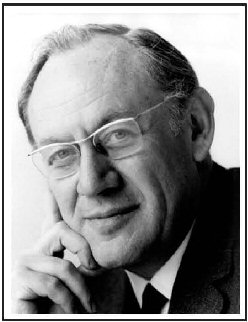 Arthur M. Sackler, M.D.
Arthur M. Sackler, M.D.
1913 - 1987 Hall of Fame 2006
Brooklyn-born Arthur Sackler was educated at New York University. He worked at Lincoln Hospital in New York City as intern and house physician, and then completed his residency in psychiatry at Creedmoor State Hospital. His National Academies of Sciences biography states that "there, in the 1940s, he started research that resulted in more than 150 papers in neuroendocrinology, psychiatry, and experimental medicine. He considered his scientific research into the metabolic basis of schizophrenia his most significant contribution to science, and served as editor of the Journal of Clinical and Experimental Psychopathology from 1950 to 1962." It was in this very journal that Dr. Sackler introduced the world to the Hoffer-Osmond high dose niacin therapy for mental illness. In his memoirs, Abram Hoffer writes: "I wonder if our first paper on schizophrenia treatment with niacin would even have been published, had Arthur Sackler not been both my professional colleague and friend." Back in 1951, Hoffer had met the Sackler brothers, "who were doing groundbreaking research on histamine as a schizophrenia treatment. Their work would inspire some of our initial biochemical research." Dr. Sackler would continue to publish and to inspire physicians worldwide. He started the highly-respected Medical Tribune newspaper in 1960, which would grow to an international readership of over one million, with Sackler himself contributing over 500 articles on a wide variety of health issues. In 1981, Sackler ran a page-one story on Ruth Harrell's study showing that high doses of vitamins improve IQ in Down syndrome children. In one 1982 column, he personally declared his support for bowel-tolerance doses of ascorbate, including with his comments the text of "a letter we just received from Robert Cathcart III, M.D." whom Sackler described as "brilliant." Many physicians first saw these words in the Tribune: "Ascorbic acid administered orally to bowel tolerance (just short of producing diarrhea) has a definite antipyretic effect (and) administered IM to small infants will usually have a dramatic effect on elevated temperatures."
|